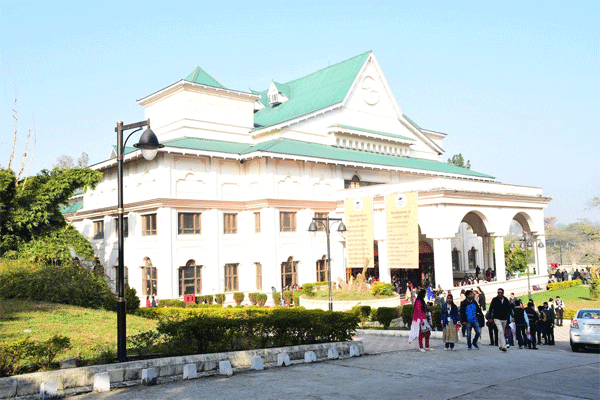The realm of technology has birthed innovative roles; among them, the blockchain developer stands out as a crucial architect of decentralized systems. A blockchain developer is an expert who crafts, deploys, and maintains blockchain applications, reshaping industries with transparency and security. Aspiring developers can harness the power of educational resources like blockchain certification courses and dedicated blockchain courses to embark on this transformative journey. These learning avenues provide insights into blockchain’s intricacies, smart contracts, and decentralized app development, equipping individuals with the skills needed to shape the future of digital transactions and revolutionize industries across the spectrum.
What is a blockchain?
A blockchain is a decentralized and immutable computer network’s digital ledger that keeps track of transactions. It operates on a transparent and secure platform, ensuring data integrity and preventing unauthorized alterations. Blockchain’s revolutionary potential lies in its ability to facilitate trust and transparency in various fields, including finance, voting systems, and supply chain management. Blockchain certification course is designed to educate individuals about this technology, covering its fundamentals, consensus mechanisms, and real-world applications. These courses equip participants with the skills to understand, develop, and manage blockchain networks, fostering expertise in a rapidly evolving technological landscape.
A blockchain course offers comprehensive insights into the architecture and workings of this transformative technology. Participants delve into concepts like cryptographic hashing, smart contracts, and decentralized applications (DApps). Additionally, they gain practical experience through hands-on exercises, learning to build and secure their blockchain projects. As industries continue to explore blockchain’s potential, individuals with blockchain certification can take advantage of diverse career opportunities, whether as blockchain developers, consultants, or system architects. Ultimately, a blockchain course empowers learners with the knowledge and expertise to navigate the complexities of blockchain technology and contribute meaningfully to its global implementation.
What is blockchain development?
Blockchain development involves creating and maintaining decentralized digital ledgers known as blockchains. These blockchains are comprised of interconnected blocks that keep data transparently and safely. Utilizing cryptographic techniques, each block contains a unique code (hash) of the previous one, ensuring the integrity of the entire chain. This technology eliminates the need for intermediaries, as A distributed network of computers verifies transactions. Blockchain development encompasses designing smart contracts, decentralized applications (DApps), and protocols for various sectors such as finance, supply chain, healthcare, and more. Its potential lies in enhancing security, transparency, and efficiency across industries by revolutionizing traditional data management systems.
What does a blockchain developer do?
A blockchain developer is a professional responsible for designing, implementing, and maintaining blockchain-based applications and systems. Their role involves:
- Protocol Understanding: Mastering the intricacies of blockchain protocols like Bitcoin, Ethereum, or others.
- Smart Contracts: Creating and coding smart contracts to automate processes on the blockchain.
- DApp Development: Designing decentralized applications (DApps) with user-friendly interfaces.
- Security Expertise: Ensuring the security of data and transactions through encryption and consensus mechanisms.
- Node Management: Setting up and managing blockchain nodes to maintain the network’s integrity.
- Performance Optimization: Enhancing blockchain efficiency and scalability for smooth operation.
- Problem Solving: Debugging issues and implementing solutions in a decentralized environment.
- Collaboration: Working with cross-functional teams to integrate blockchain solutions into various industries.
- Continuous Learning: Staying updated on emerging blockchain technologies and trends.
Blockchain developers play a vital role in revolutionizing industries by leveraging the power of decentralized and transparent systems.
Benefits of becoming a blockchain developer
- High Demand: The industry’s exponential growth ensures a constant demand for skilled professionals.
- Lucrative Salaries: Scarcity of expertise leads to competitive pay packages and perks.
- Innovation: Opportunities to work on cutting-edge projects, pushing technological boundaries.
- Diverse Sectors: Blockchain’s applicability spans finance, healthcare, supply chain, gaming, and more.
- Decentralization Knowledge: Insight into decentralized systems and their transformative potential.
- Remote Work: Many roles allow flexibility in working remotely.
- Skill Versatility: Coding, intelligent contracts, cybersecurity, and problem-solving proficiency.
- Future Relevance: Blockchain’s growing role ensures ongoing job relevance and stability.
How to become a blockchain developer
- Foundation: Acquire a solid understanding of blockchain technology, cryptography, and decentralized systems.
- Programming Languages: Learn languages like Solidity for Ethereum or languages for other platforms, such as Rust for Polkadot.
- Smart Contracts: Gain expertise in developing and auditing smart contracts, ensuring security and functionality.
- Blockchain Platforms: Familiarize yourself with major platforms like Ethereum, Binance Smart Chain, and others to understand their nuances.
- Web3 Technologies: Learn Web3 libraries to interact with blockchain networks and build decentralized applications (DApps).
- Decentralized App Development: Develop DApps with features like user authentication, data storage, and integration with blockchain.
- Security Awareness: Prioritize security practices, code audits, and handling potential vulnerabilities.
- Version Control: Master tools like Git to collaborate effectively on blockchain projects.
- Continuous Learning: Stay updated on blockchain advancements, attend conferences, and engage in the developer community.
- Hands-On Projects: Build personal projects and contribute to open-source blockchain initiatives to showcase your skills.
Conclusion:
A blockchain developer is a visionary bridge between technology and innovation. They construct the foundation of secure, transparent, and decentralized digital systems through meticulous coding and problem-solving. To embark on this dynamic journey, aspiring developers can seize the path of enlightenment through comprehensive resources such as blockchain certification courses and dedicated blockchain courses. These educational avenues empower individuals to grasp the intricacies of blockchain technology, equipping them with the skills to design and implement transformative solutions. By embracing these opportunities, one can unravel the endless potential of blockchain, contributing to a future shaped by innovation and trustless collaboration.






